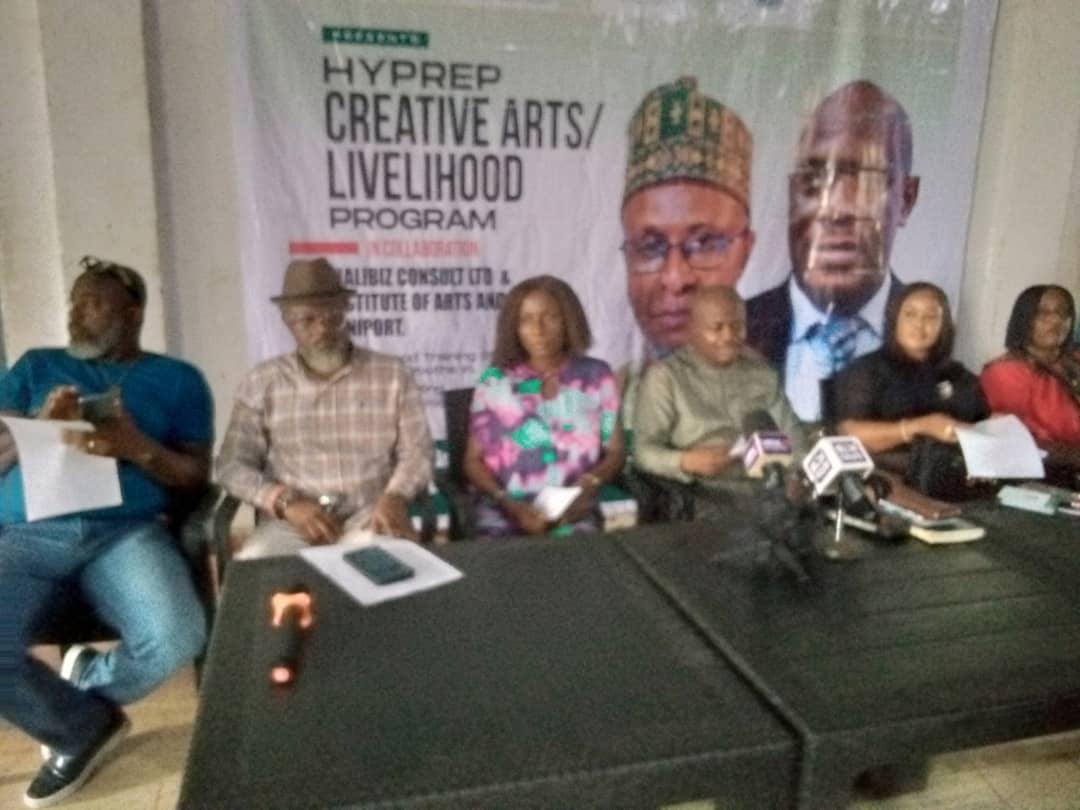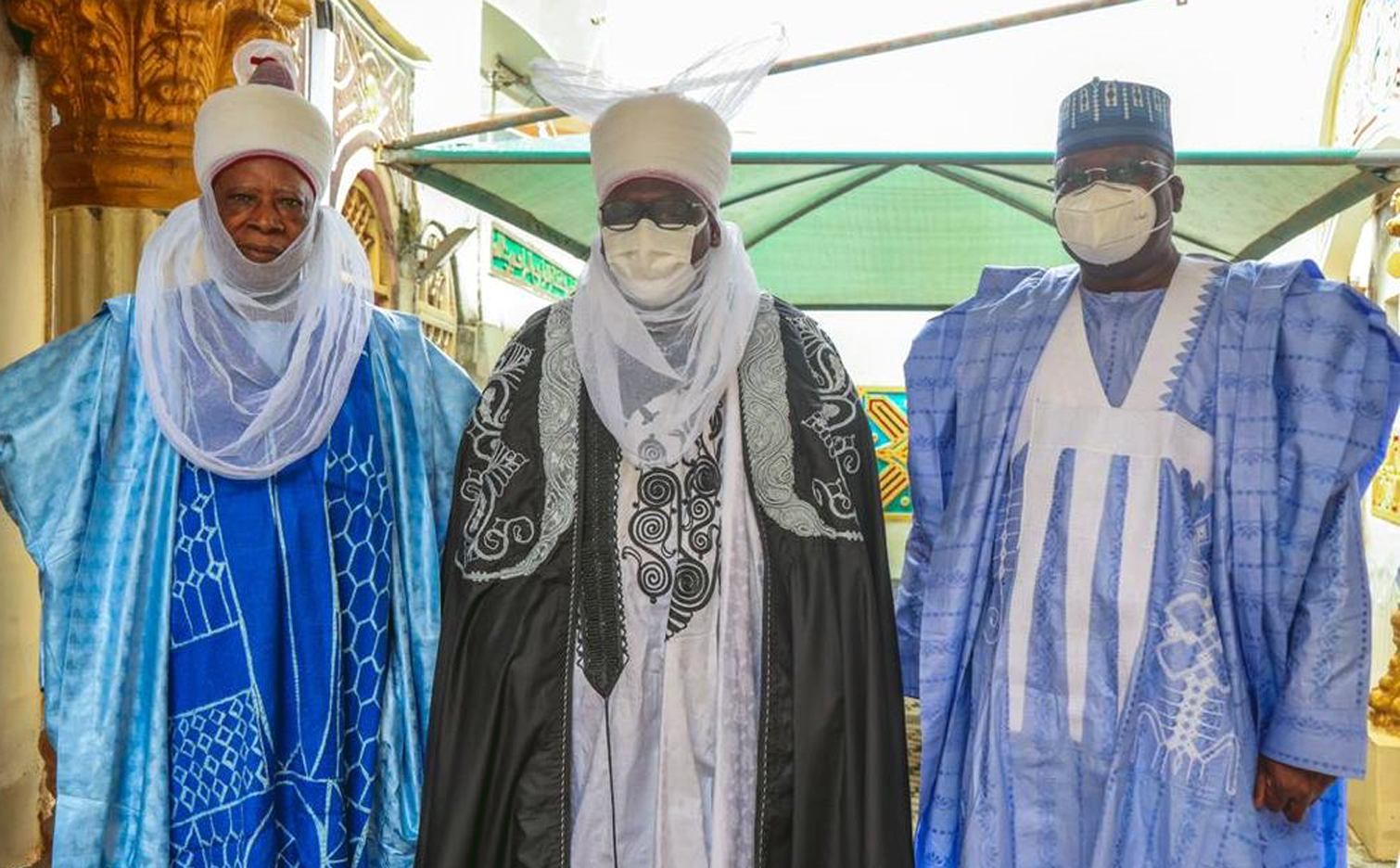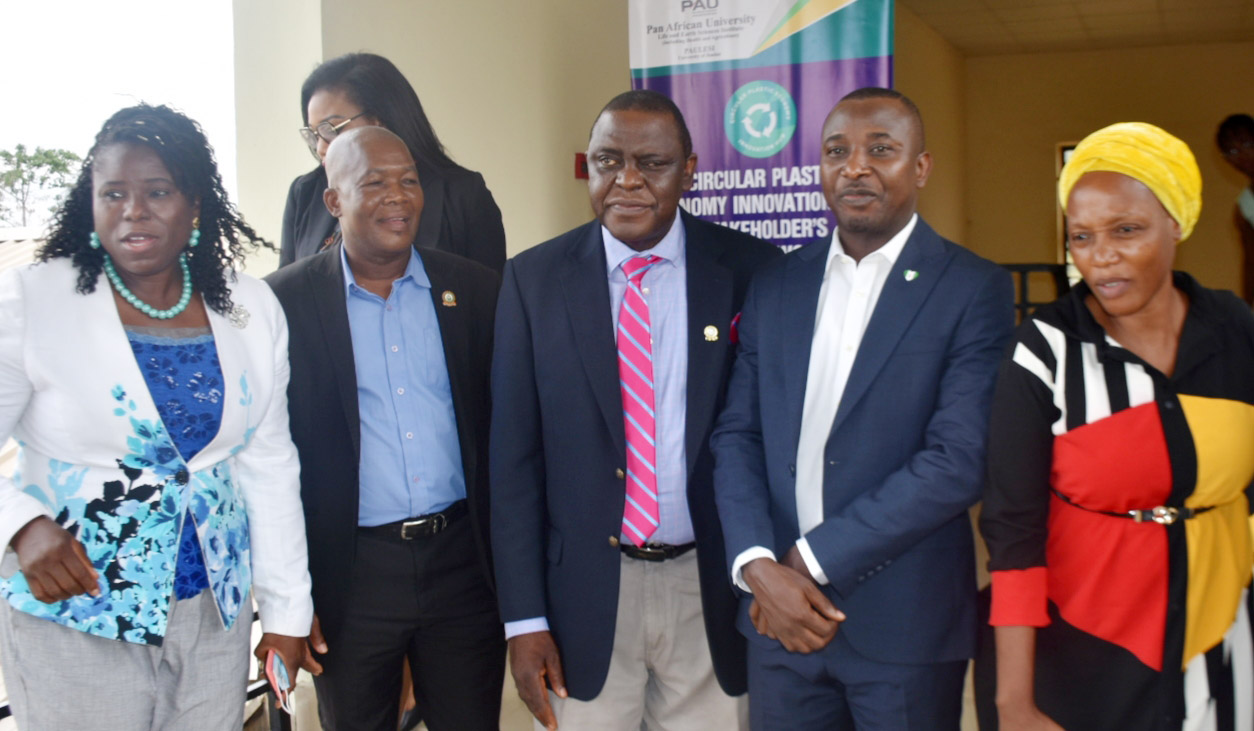Nation
Ministry Urges Schools To Equip Students With Skills, Trades
The Federal Ministry of Education has urged school owners to ensure that students get functional education inclusive of skills and trades that could be translated into means of livelihood in the future.
A Deputy Director, Senior Secondary Education Department in the Federal Ministry of Education, Mr Achede Joseph, said this at the opening of Strategic Plan Meeting on Monday in Abuja.
The meeting, which focused on leveraging low cost education in Nigeria, was organised by Knosk #100 A-Day School in Kuje.
Joseph said the need for functional education could not be overemphasised, especially from early learning years.
“We, at the Federal Ministry of Education are no longer interested in just paper qualifications of graduates; we want children that will come out of school with skills.
“Education now goes beyond paper certification to acquisition of functional skills that could be translated into means of sustenance and livelihood.
“That is why we the federal ministry of education are empowering the federal colleges especially the federal technical schools.
“By properly equipping these schools so that our children will not just come out with just paper qualifications but will have tangible trades and skills”, he said.
Joseph said the government had also mainstreamed into the educationally curriculum skills acquisition programmes because it realized that skills were the major drivers of the world’s development.
Joseph lauded the Knosk #100 A-Day school for empowering their students with valid skills that would make them graduate and go into businesses and entrepreneurship instead of looking for white collar jobs which were unavailable.
He commended the school for using its little resources to provide solution to the country’s spate of out-of-school children.
He said that the school needed to be recognized and commended on a public platform in order to draw the attention of more funders and sponsors and to also motivate other school owners to absorb out-of-school children.
Founder of the Knosk #100 A-Day School, Mr Kingsley Bangwell, said the school and its project were all primarily established and designed for children from the poorest households and it remained committed to ensuring that the education was affordable.
He said if out-of-school children menace was not addressed at the grassroots, it portended a lot of challenge.
“If this children did not go to school today, in ten years time they would be younger adults without skills, without livelihoods and because they must survive, they will put the rest of us at risk by engaging in illegal means of sustenance.
“So, we are doing what we can to support government because government alone can’t solve this problem, we are doing what we can as a private organization to keep as many children as possible in school and that’s why we set up this school in Kuje.
“The students here get books, uniforms, lunch, sanitary pads for the girls and computer based education.
“And we have run this school primarily raising money on social media by asking people to adopt or sponsor a child in order to keep them in school”, he said.
Bangwell said that it cost #66,000 per term to keep a child in school and many well meaning Nigerians, Non-Governmental Organizations (NGOs) and even other private schools had been supporting the school.
According to him, “we’ve been on social media, on Instagram, on Facebook just telling the story of these kids by posting online.
“People visit our pages to see, some come physically to the school to verify someone from the UK had to send someone come check the school before he made a donation.
“So we have donations from Nigerians, non-Nigerians, donations from Australia, Japan, US, and from people we don’t even know, they just watch our social pages, they check and they come to support us.
“And It’s four years now that we’ve been running the school and while we thank support from NGOs like the Grant from MacArthur foundation, we also need more support for our teachers and primarily for the students”, he said.
He called for more sponsorship from individuals, the government and private organisations to keep the school running and keep the students in school.
Bangwell said that the vision of the school was to replicate it across Nigeria and in Africa by the year 2025.
Mrs Olusola Bankole, Member of the Board of Trustees of the School, said that she hoped the strategic meeting with educational stakeholders would attract the right sponsors, partners and donors.
“This event was set up to project the school and its activities to the public and to draw the attention of potential partners and donors.
“We want to be able to let others also know that there is such a school and that this is how far we have gone, these are the impacts we have made and this is what we intend to do in the next phase of our activities.
“Another major essence of this meeting is also to promote the impacts of what we are doing in education; you know one of the basic purposes of education in the Nigerian constitution is to give every child the right to quality education
“But we noticed that what some of these students are even getting is less than quality, what it means is that even the Nigerian government needs to work and the education ministries need to work to meet up with educational standards in the country”, she said.
She urged the government should look into the spate of out-of-school children and support schools such as Knosk who where providing solutions to the menace.
She reiterated that quality education was expensive and that the welfare of the children in the school could not be left for the school management alone or a few partnering sponsors.
“We currently have the support of the MacArthur Foundation but nobody should miss the facts that education is expensive and quality education is even more expensive.
“The cost of what we give to the children is enormous but without supports we may not be able to continue doing what we are doing.
“Supports from well-meaning people and even support from other private schools who are aware that we are doing the right thing is what has kept the school running and we need more support to ensure that no child is left behind”, she said.
She said that there were various ways to support and keep the students in school, including monthly support, annual, quarterly and continuous.
The Tide’s source reports that Knosk #100 A-Day school is a low cost school for underprivileged children in Kuje community.
The school provides school uniforms, books, lunch and sanitary pads for the girls with a daily fee of #100 per student.
Nation
HYPREP Inducts 100 Ogoni Youths For Creative Arts Training

The Hydrocarbon Pollution Remediation Project(HYPREP) has inducted and given orientation to 100 Ogoni youths for training on Creative Arts. The beneficiaries were drawn from Khana, Gokana, Tai and Eleme Local Government Areas of Rivers State.
The induction and orientation ceremony, which took place at the CRAB of the Department of Theatre Arts of the University of Port Harcourt on Wednesday, was a prelude to the training proper, billed to commence next Tuesday.
As usual, HYPREP issued undertaking forms to the trainees, for them to complete and submit as a guarantee that they would subject themselves to the requirements of the programme as well as be of good behaviour throughout the four-month duration of the training.
HYPREP also announced that it would pay N150,000 to each of the beneficiaries monthly, as transport and feeding allowance, stressing, however, that only those who fully participate in the training would be entitled for the allowance.
Speaking at the event, the Project Coordinator of HYPREP, Prof Nenibarini Zabbey, welcomed the trainees to the programme, saying, HYPREP’s projects are evolving and that one thing that is happening today is that the Project has gotten leadership right, by making promises and keeping those promises.
According to him, the Project had equally promised to move away from rudimentary skills acquisition to high impacts acquisition levels, which it has kept today by sponsoring the training on Creative Arts.
He noted that in planning its livelihood programmes for Ogoni youths, HYPREP has taken time out to look for skills that would add value to the lives of the beneficiaries.
Zabbey, who was represented at the event by the Director of Technical Services, Prof Damian-Paul Aguiyi said by packaging the Creative Arts training, it was expected that the Ogoni people would have their own version of Nollywood known as Ogoniwood just as Nigerians are familiar with Hollywood, Bollywood, Kannywood and Nollywood.
To achieve this goal, the Project Coordinator explained that it was the reason for choosing a reputable establishment like Halibiz Consult Limited, to partner with the Department of Theatre Arts of the University of Port Harcourt, which he described as one of the most prestigious in the Niger Delta, for the training of the beneficiaries.
He also indicated that in doing this, HYPREP was desirous of going for talents that would help the Ogoni people grow in the film industry, and urged the beneficiaries to take the training seriously.
Zabbey equally enjoined the trainees to put in their best so that in the next three to five years, they would carve a niche for themselves and become forces to reckon with in the film industry.
On her part, HYPREP’s Head of Sustainable Livelihood, Mrs Josephine Nzidee said HYPREP does what it says it will, stressing that the process of training Ogoni youths on specialised skills started three years ago.
According to her, the selection process for the training was rigorous and transparent, and was carried out by renowned actors actresses.
She disclosed that the training consists of three major aspects, which include acting, script writing and make-up, while Nollywood actors like Charles Nnoje, Ngezu J. Ngezu and award-winning make-up artist, Jude Odo would be on hand to drill and groom the beneficiaries.
Mrs Nzidee noted that the programme is a specialised training that does not have anything like starter packs but that it is purely a professional certification programme that would launch the beneficiaries into the Nollywood industry in Nigeria.
According to her, the Creative Arts training is one of the four specialised trainings organised by HYPREP to ensure that the Ogoni people are well positioned in vital industries like Aviation, Maritime, Creative Arts and Mechatronics.
She said the last of such trainings on Mechatronics would take place in the coming months, and urged the beneficiaries to take the training seriously so as to put the Ogoni people on the Nollywood map.
She further indicated that while Charles Nnoje and Ngezu J. Ngezu would take the beneficiaries on the practical aspects, Jude Odo would take them on the make-up aspects.
Also speaking, the External Relations Manager of Halibiz Consult Limited, Alabo Experience Douglas said his company gives much premium to standard and quality, and assured that the firm would give the trainees value for the money spent on the programme.
While charging the beneficiaries to be dedicated and punctual, he stressed the need for them to approach the programme with the mindset of being empty so that at the end of the day, they would benefit maximally.
On his part, the Head of the Theatre Arts Department of the University of Port Harcourt, Dr Ovunda Ihunwo said the CRAB is an acronym for Creative Review of Arts and Books, stressing that it was named by renowned playwright, Prof Ola Rotimi.
According to him, the CRAB had nurtured, groomed and produced Nollywood actors and actresses like Bobmanuel Udokwu, Ejike Asiegbu,Francis Duru, Hilda Dokubo, Monalisa Chinda, Julius Agwu, and a host of others, assuring the beneficiaries that they were on fertile environment to hone their talents.
He noted that symbolically, the crab is a nutritious seafood common in the Niger Delta, and reiterated the need for the beneficiaries to come empty for the training, as it were.
Ihunwo disclosed that the theory classes of the programme would run for three weeks while the fourth week would be for the master classes, and urged the trainees to avail themselves of the opportunity to make a difference by telling the Ogoni story, which he described as inexhaustible by themselves, in order to put Ogoni on the map.
Nation
Nasarawa Varsity Student Commits Suicide

A 23-year-old student of Nasarawa State University identified as Jatau Rilokwah, has been reportedly found dead in the university’s senior staff quarters.
A counter-insurgency expert, focused on the Lake Chad region, Zagazola Makama, disclosed this on his X handle on Tuesday.
According to him, the discovery was made on April 27, 2025, by a security officer at the university, Emmanuel Gyawo.
He stated that Gwayo was directed by Prof. Shedrack Jatau to check on his son upon arriving at the residence, and he found Rilokwah hanging from the ceiling.
“Professor Jatau, who was reportedly out of the State at the time, was informed of the incident. A team of police detectives, led by the Divisional Crime Officer of Angwan Lambu, was dispatched to the scene.
“The body showed no signs of violence, and no suicide note was found. Rilokwah was rushed to the Federal Medical Centre in Keffi, where he was confirmed dead by a medical doctor,” he further stated.
He added that the student’s corpse had been deposited in the hospital morgue.
He also quoted police sources as saying that investigations were ongoing to determine the circumstances surrounding the incident.
Nation
Ogun, Nike Art Gallery Set To Transform Olumo Rock

The Ogun State Government has partnered with Nike Art Gallery to establish a new exhibition space at the Olumo Rock Tourist Centre in Abeokuta, a move Governor Dapo Abiodun says is aimed at boosting annual tourist visits from 20,000 to over 100,000.
Abiodun disclosed the plan on Wednesday while receiving the founder of the Nike Art Gallery, Chief (Mrs) Nike Davies-Okundaye, at his office in Oke-Mosan, Abeokuta.
“I went to Olumo Rock about a month ago and I decided that we needed to do something about restoring Olumo Rock to its old glory. From statistics, Olumo Rock hosts about 20,000 people a year in its current state, and I felt that we could increase that to at least ten times,” the governor said.
As part of the plan, an events hall within the tourist centre will be repurposed as a permanent gallery operated by Nike Art Gallery.
“I told them to shut it down. Practically, we want to bring it down and turn it into a gallery for you to use as an exhibition gallery,” he told Davies-Okundaye.
He added that the gallery will be ready before the National Sports Festival in May, when the State will host about 15,000 visitors.
“I want them to be able to see our tourist sites,” he said, listing attractions such as the Olusegun Obasanjo Presidential Library, the Ransome-Kuti family home, and the Adire market among key heritage spots to be showcased.
Highlighting Ogun’s improved infrastructure, the governor said, “Now that we’ve succeeded in having the intra and inter-state roads in place, you can come to Ogun State by rail; you can come by air. We’ve constructed one of the best airports in Nigeria, and very soon, you will be able to come by sea.”
Davies-Okundaye, in her remarks, praised the state’s efforts to promote tourism and pledged to use the new gallery to attract global attention.
“This gallery will bring many Heads of State. The one I opened in Abuja already has more than 10 Heads of State, including those from South Korea and the Czech Republic. The same will happen here,” she said.
She also applauded the Governor for his commitment to the Adire fabric industry.
“Adire is all over Nigeria, but Ogun has been promoting Adire for over 50 years. Today, the only cloth we can call our own is called Adire. This is what we can sell to the Europeans,” she said.
Abiodun reaffirmed his administration’s backing of the Adire industry, citing policies such as the Adire Ogun Digital Marketplace, compulsory wearing of Adire in the state, and provision of solar-powered production equipment to support artisans.
He also revealed plans to open a creative arts and entertainment village in partnership with Bolanle Austen-Peters, expected to be completed within two months.

